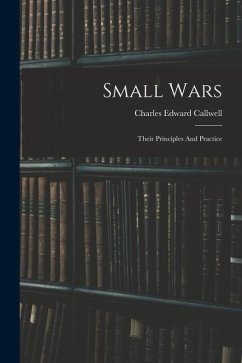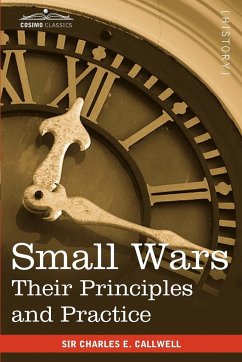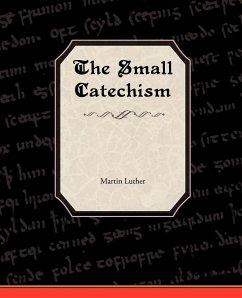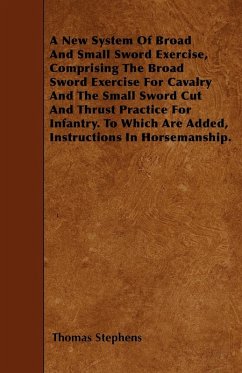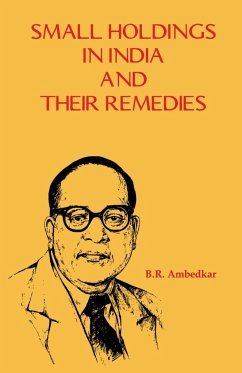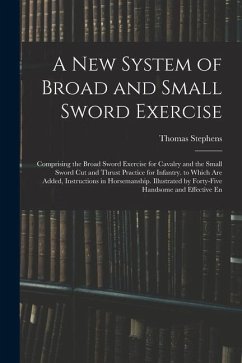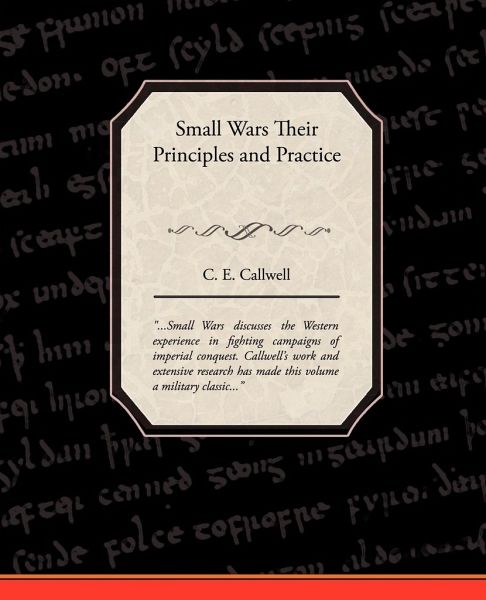
Small Wars Their Principles and Practice
Versandkostenfrei!
Versandfertig in 1-2 Wochen
39,99 €
inkl. MwSt.

PAYBACK Punkte
20 °P sammeln!
Small Wars discusses the Western experience in fighting campaigns of imperial conquest. Callwell's work and extensive research has made this volume a military classic. Warfare topics range from from Hoche's suppression of the Vende's revolt during the French Revolution, to the British wars against semi-organized armies of Marathas and Sikhs in mid-nineteenth-century India, to the Boer War of 1899-1902. Callwell concludes that technological superiority is important, but not the most important ingredient in low intensity warfare. An army must adapt to climate, terrain, an enemies mobility, and t...
Small Wars discusses the Western experience in fighting campaigns of imperial conquest. Callwell's work and extensive research has made this volume a military classic. Warfare topics range from from Hoche's suppression of the Vende's revolt during the French Revolution, to the British wars against semi-organized armies of Marathas and Sikhs in mid-nineteenth-century India, to the Boer War of 1899-1902. Callwell concludes that technological superiority is important, but not the most important ingredient in low intensity warfare. An army must adapt to climate, terrain, an enemies mobility, and take what an enemy values most.



